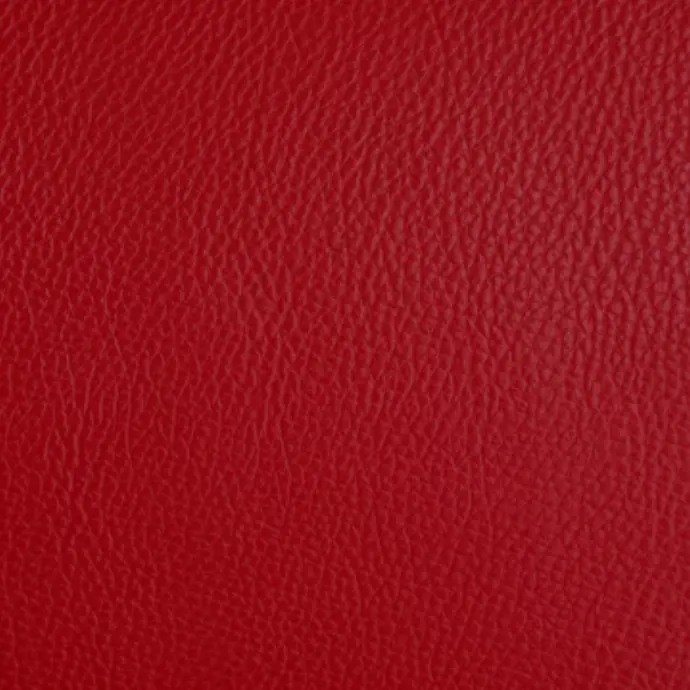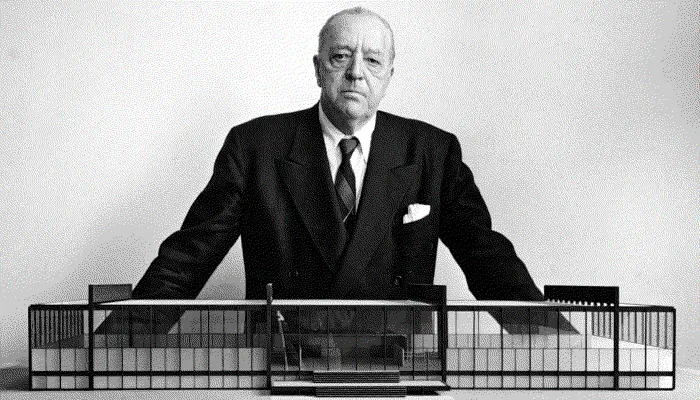Brno Chair Tubular
30-Tage-Geld-zurück-Garantie
Versand: 2-3 Geschäftstage
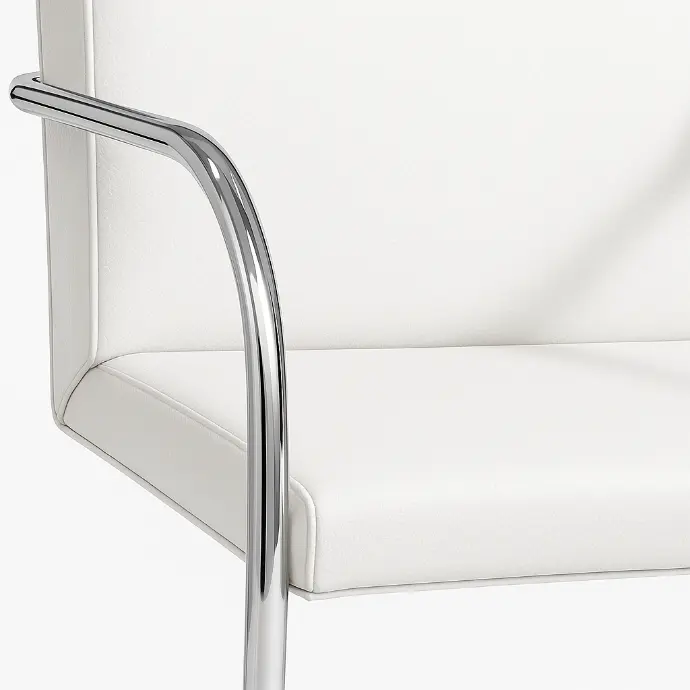
Produktdetails
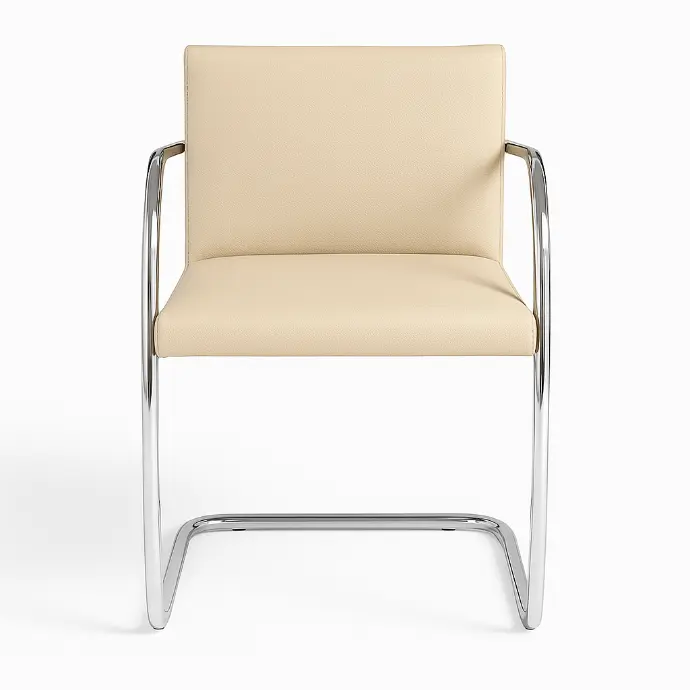
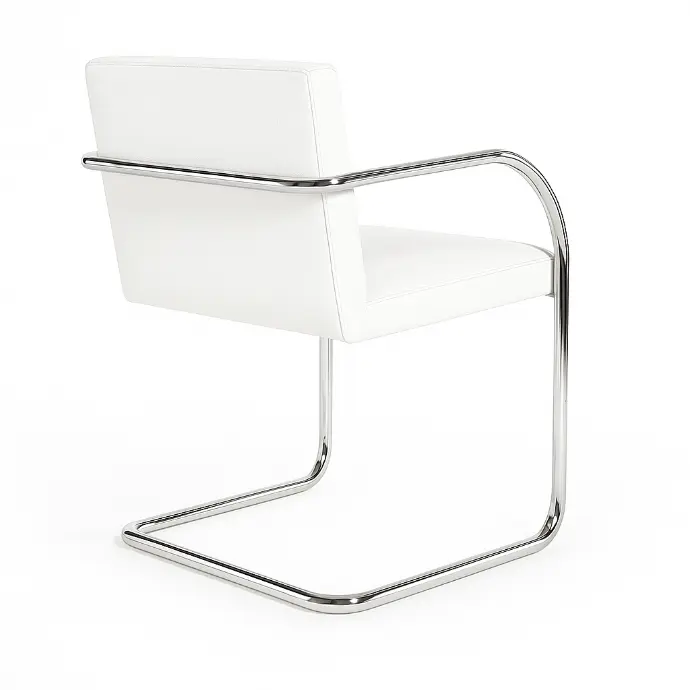
Materialien & Oberfläche
The Brno Chair with tubular steel frame is built from precision-bent stainless steel tubing, hand-polished to a high-gloss finish, resistant to scratches and oxidation. The seat and backrest are upholstered in premium aniline leather, supported with dense polyurethane foam for long-lasting resilience. The combination of tubular steel and leather highlights the Bauhaus principle of minimalism and structural honesty.
The cantilever design generates a flexible spring effect, providing ergonomic seating comfort. The upholstered seat and backrest adapt to the body while maintaining shape through extended use. Lightweight and compact, the Brno Chair is easy to reposition and suitable for conference, dining, or office environments. Its tubular frame offers a lighter visual expression compared to the flat steel version while retaining the same Bauhaus clarity.
Komfort & Funktionalität
The chair’s frame is formed from a continuous tubular element, welded and polished to create a seamless cantilever structure. The leather-upholstered seat and backrest are mounted securely to the frame with concealed fixings, preserving the clean, uninterrupted geometry. Reinforced seams and saddle stitching ensure durability of the upholstery. Rounded edges and polished welds contribute to safety and longevity.
Konstruktion
Größe und Verpackung vom Produkt
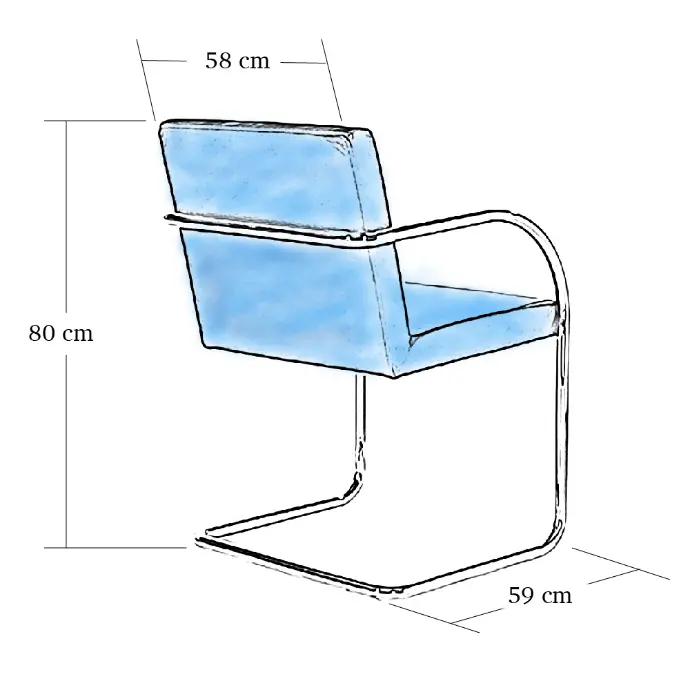
Produkt Abmessungen
Sitz muss auf das Gestell geschraubt werden
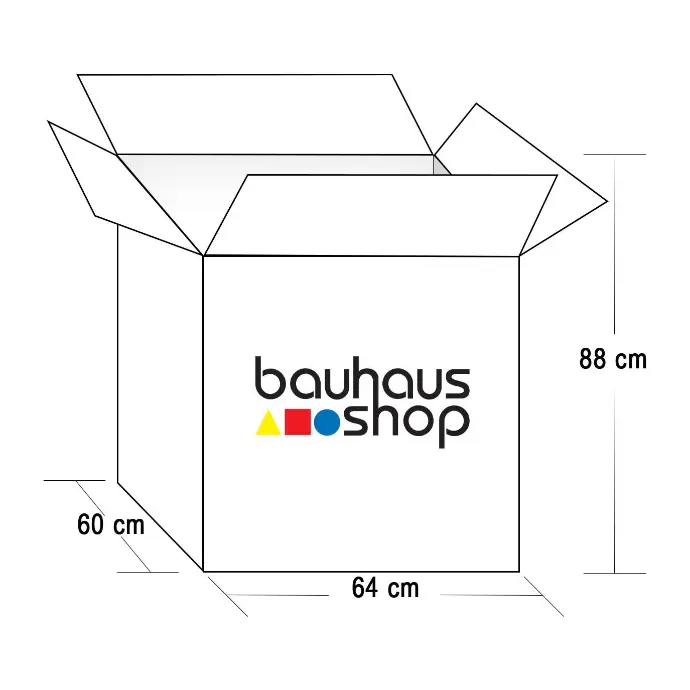
Karton Abmessungen
verpackt in 1 Karton
Mies van der Rohe
Ludwig Mies van der Rohe (1886–1969) was a German-American architect and designer, recognized as one of the leading figures of modernism. Known for his minimalist approach, he coined the famous maxim “less is more.” Mies emphasized clarity, proportion, and the use of modern materials like steel and glass to create open, flexible spaces. His iconic works include the Barcelona Pavilion (1929), the Farnsworth House, and the Seagram Building in New York. He also designed influential furniture, such as the Barcelona Chair. Mies’s vision of universal, timeless design profoundly shaped 20th-century architecture and continues to inspire contemporary practice.
?unique=f127f9c)
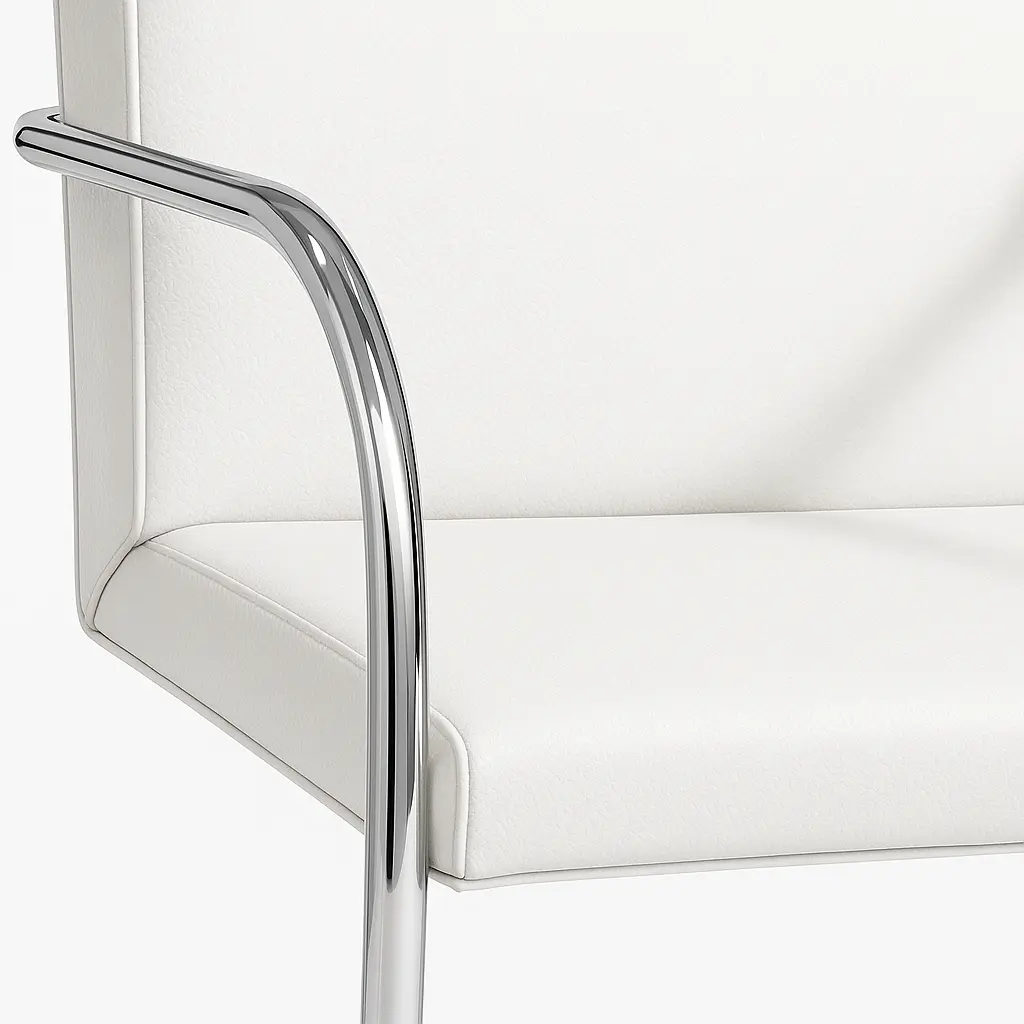
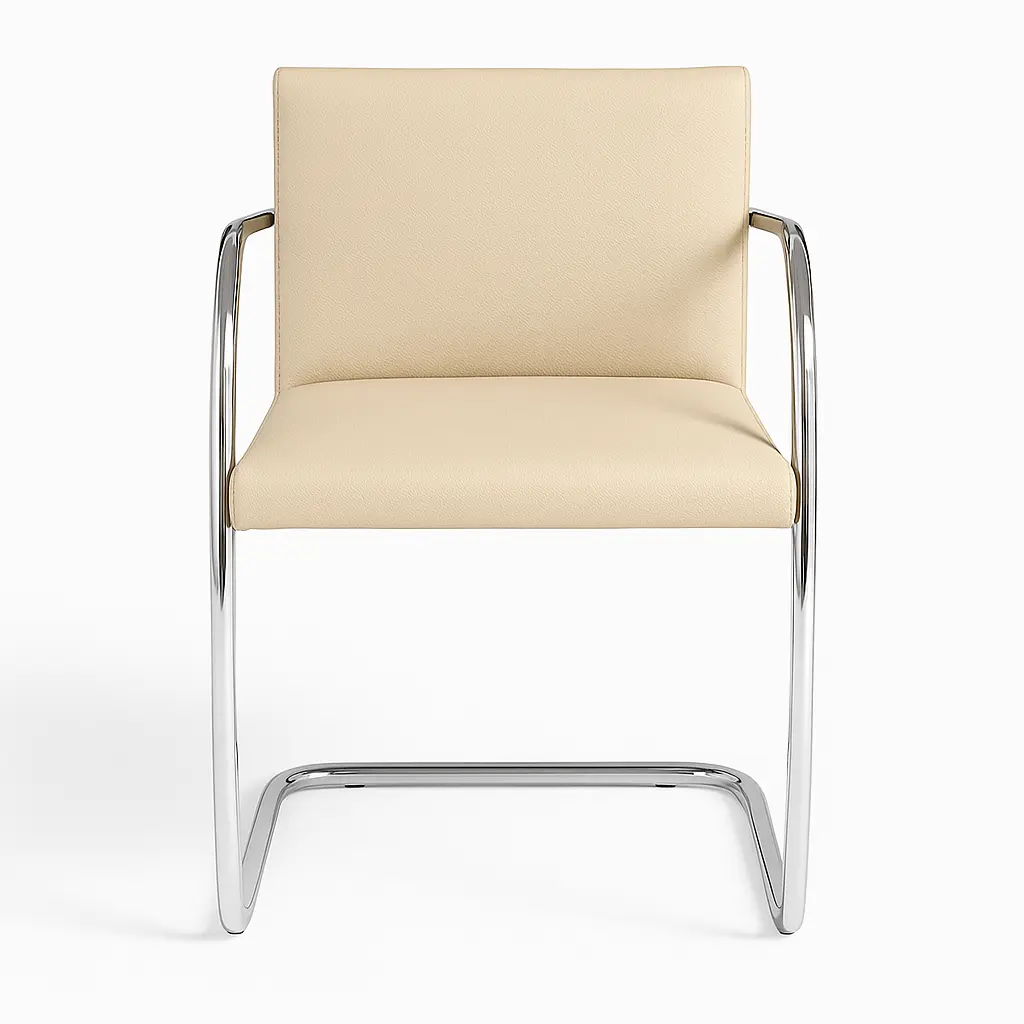
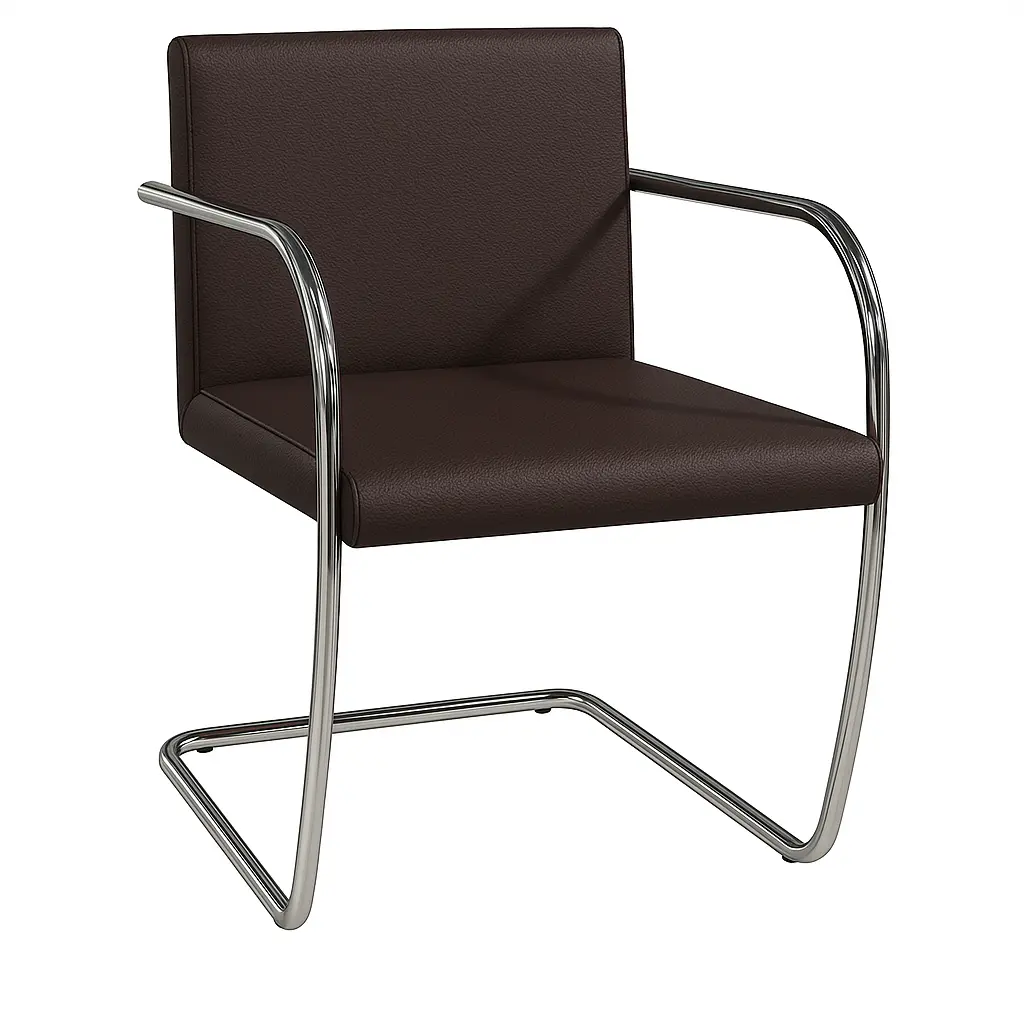
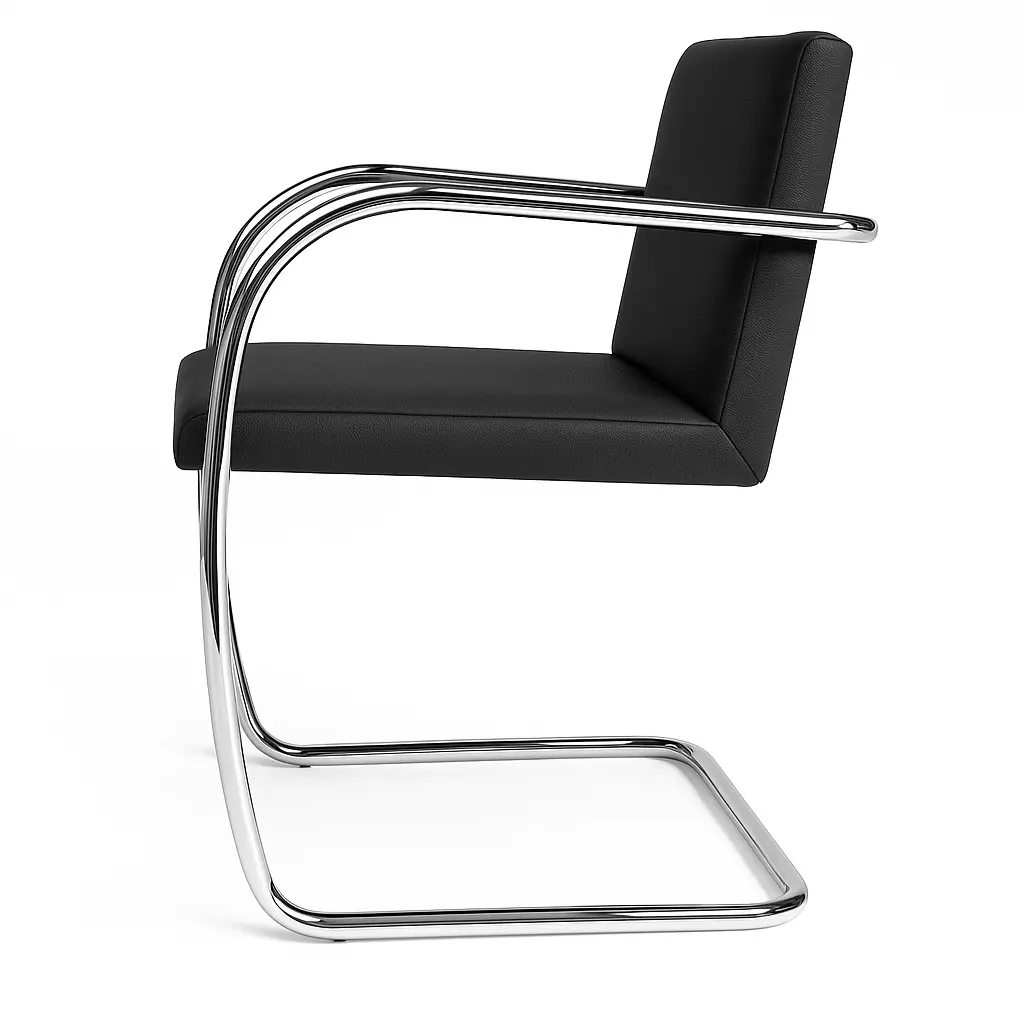
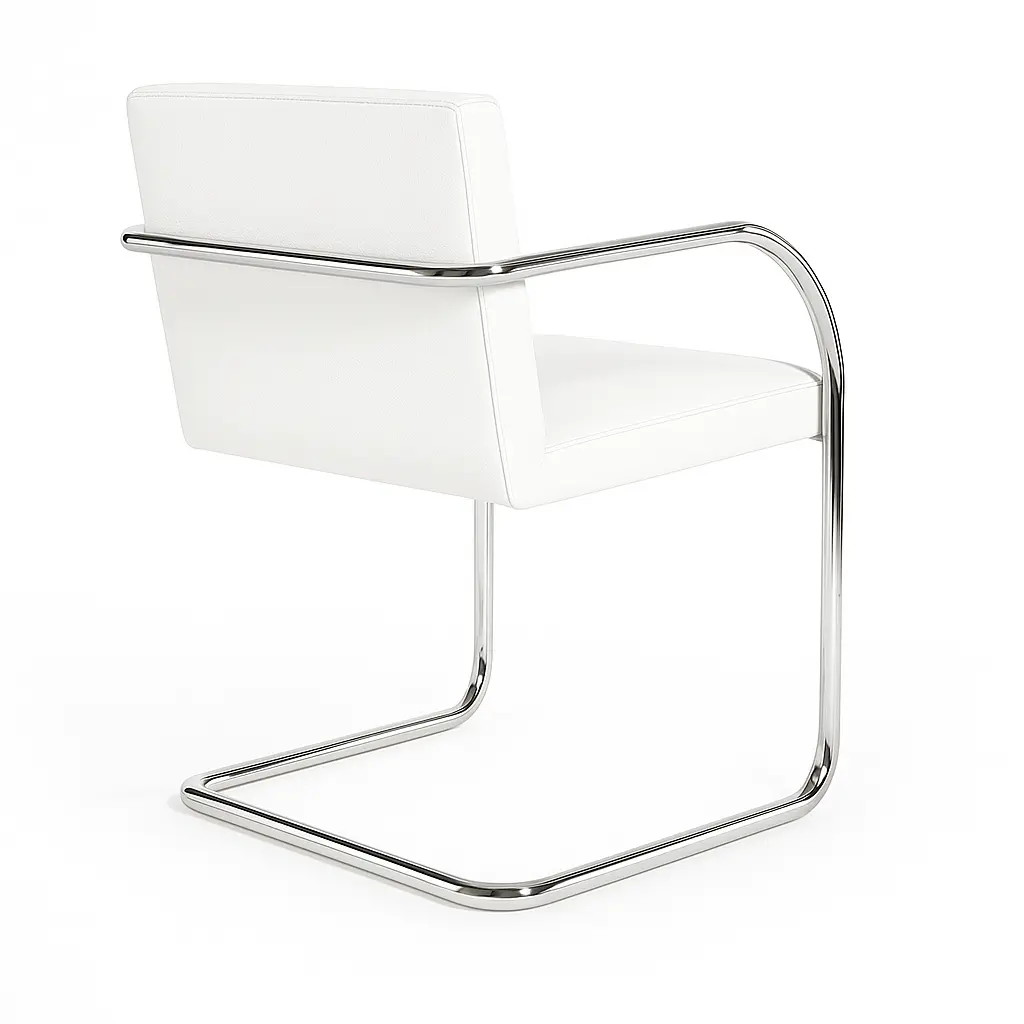
?unique=f127f9c)





